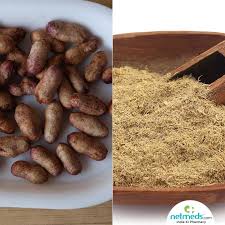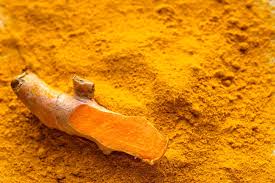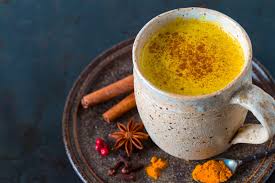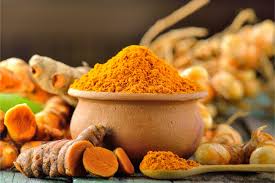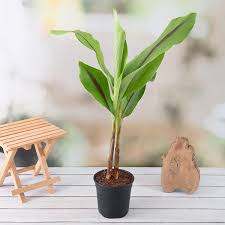
The Future of Herbal Medicine: Trends & Innovations
Herbal medicine has been an integral part of human health for centuries. However, with modern research, technological advancements, and increasing global interest in natural remedies, the future of herbal medicine is evolving rapidly. From scientific validation of ancient remedies to innovative herbal formulations, the industry is set to revolutionize healthcare in the coming years.
In this article, we explore the latest trends and innovations shaping the future of herbal medicine and why it is gaining global recognition as a sustainable and effective alternative to pharmaceuticals.
Long Description
- Scientific Research & Validation of Herbal Remedies
One of the most significant developments in herbal medicine is the scientific validation of traditional herbs. Researchers are conducting clinical studies to prove the efficacy of herbs like Ashwagandha, Turmeric, and Tulsi in treating various health conditions.
✔️ Example: Studies show that Ashwagandha reduces stress by lowering cortisol levels, making it a natural alternative to synthetic anxiety medications.
✔️ Example: Curcumin in Turmeric has proven to be more effective than anti-inflammatory drugs in managing arthritis.
This scientific backing is increasing global acceptance of herbal medicine and encouraging its integration into mainstream healthcare.
- Personalized Herbal Medicine & AI-Based Solutions
With the rise of artificial intelligence (AI) and biotechnology, herbal medicine is becoming more personalized. AI-driven health assessments can now suggest customized herbal formulations based on a person’s unique body type, genetics, and health conditions.
✔️ Example: Personalized Ayurvedic recommendations for herbal supplements based on an individual’s Dosha (Vata, Pitta, Kapha).
✔️ Example: AI-driven apps that suggest herbal remedies based on symptoms and medical history.
This innovation allows people to receive tailor-made herbal treatments for maximum effectiveness.
- Sustainable & Ethical Herbal Farming
The future of herbal medicine depends on sustainable sourcing and ethical harvesting. Overharvesting and deforestation have threatened many medicinal plants, but innovative farming techniques are addressing these challenges.
✔️ Trend: Organic & Wildcrafted Herbs – Ethical sourcing ensures purity and sustainability.
✔️ Trend: Vertical Herbal Farming – Advanced hydroponic and vertical farming techniques allow year-round production of medicinal plants with minimal environmental impact.
By focusing on sustainability, the herbal industry is protecting biodiversity while ensuring long-term availability of medicinal plants.
- Herbal Supplements & Functional Foods
Herbal medicine is now being incorporated into everyday food products, making it easier for people to integrate herbal benefits into their lifestyle.
✔️ Trend: Herbal-Infused Beverages – Teas, tonics, and kombuchas infused with healing herbs like Turmeric, Ginger, and Holy Basil are gaining popularity.
✔️ Trend: Plant-Based Nutraceuticals – Herbal capsules and supplements with concentrated plant extracts are replacing synthetic vitamins and pharmaceuticals.
✔️ Trend: Superfoods with Ayurvedic Herbs – Products like Moringa protein powder and Ashwagandha energy bars are becoming mainstream.
The shift towards herbal functional foods is making natural healing more accessible to a larger audience.
- Herbal Medicine in Modern Healthcare
Many hospitals and clinics are now integrating herbal medicine with conventional treatments to offer holistic healthcare. Doctors are recommending herbal supplements as complementary treatments to pharmaceuticals.
✔️ Example: Herbal adaptogens like Rhodiola and Ginseng are used alongside conventional therapies to boost immunity and reduce fatigue.
✔️ Example: Herbal extracts in cosmetics and skincare (like Aloe Vera and Neem) are being medically recognized for their healing properties.
This trend is bridging the gap between modern medicine and traditional healing, making herbal remedies more credible and widely accepted.
Why Herbal Medicine is the Future?
🔹 Fewer Side Effects: Herbal remedies work in harmony with the body and have minimal side effects compared to synthetic drugs.
🔹 Sustainability: Herbal farming is eco-friendly, reducing the impact of chemical-based pharmaceuticals on the environment.
🔹 Cost-Effective: Herbal medicine is more affordable than prescription drugs, making healthcare accessible to everyone.
🔹 Holistic Healing: Instead of just treating symptoms, herbs address the root cause of health issues.
How to Adapt to These Trends?
Incorporate herbs into your daily routine – Drink herbal teas, take natural supplements, and eat superfoods infused with Ayurvedic herbs.
Stay updated on scientific research – Follow studies that validate the effectiveness of herbs like Ashwagandha, Turmeric, and Brahmi.
Choose sustainable and organic herbs – Support ethical herbal brands that practice responsible farming.
Consult an Ayurvedic practitioner – Get personalized herbal recommendations for your health needs.



